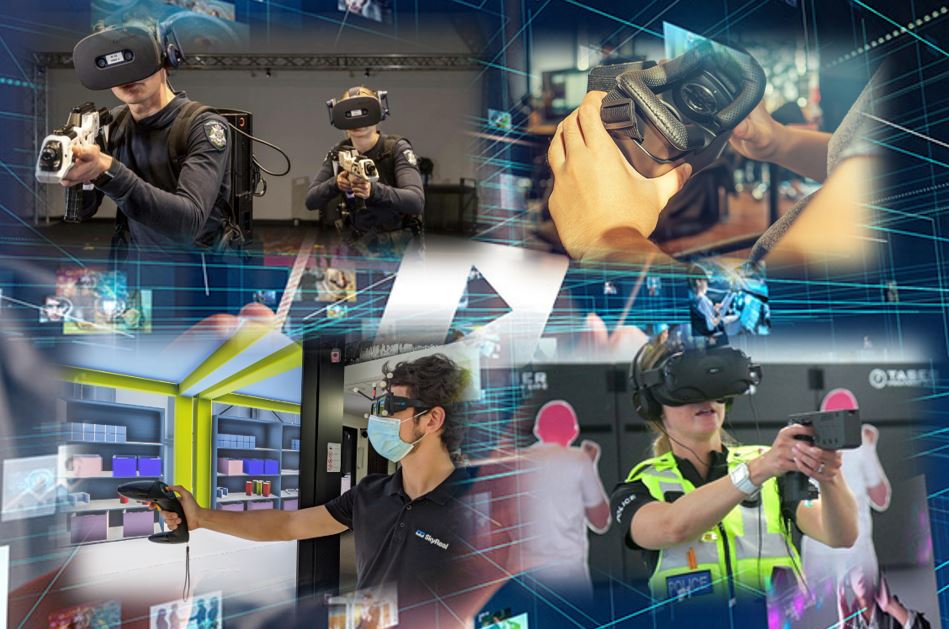Shaping the Future of Policing: The Role of Higher Education in Technological Innovation

In recent years, policing has increasingly turned to advanced technology to address the complex challenges of modern society. Immersive technologies like Virtual Reality (VR), Augmented Reality (AR), and Cave Automatic Virtual Reality (CAVE) are more than just high-tech solutions; they are transforming the ways in which police officers train, adapt, and respond in high-stress environments.
The Unique Role of Universities in Policing Innovation
Higher education institutions like Wrexham University have a pivotal role in shaping these advancements. Universities are uniquely positioned to lead in developing and hosting cutting-edge technologies for police training. With expertise from diverse fields such as computer science, criminology, psychology, and law enforcement, universities can create tailored, research-backed solutions that address the specific needs of police forces. This multidisciplinary approach is vital for creating realistic and effective training tools.
One of the great strengths of universities is their ability to foster collaboration between academics, technology developers, and law enforcement agencies. By hosting partnerships and sharing resources, we can bring the best minds together to design training tools that not only simulate real-world scenarios but are also based on the latest research in cognitive and emotional responses. This ensures that the training technology we create is not just innovative, but grounded in practical learning outcomes.
Immersive Technology in Action
Policing is a profession that relies on experience – the kind gained through rigorous training in real-world conditions. Immersive technologies provide a safe yet realistic environment where officers can practice responding to situations like crowd control, tactical decision-making, and even mental health crises. For example, VR and AR simulations allow officers to repeat exercises and adjust their strategies in real time, honing skills that are essential in high-pressure situations. At Wrexham University, we’re exploring ways to use these technologies in our policing courses, offering students a hands-on experience with the tools reshaping the profession.
A Vision for the Future of Policing Education
As universities continue to develop and integrate these technologies, they also have the opportunity to lead conversations about the ethical implications of tech in policing. Questions around the psychological impact of immersive training, potential biases in AI-driven simulations, and the balance between technological reliance and human judgement are all areas ripe for research within higher education. By leading these discussions, universities ensure that the implementation of new technologies aligns with principles of justice and public safety.
The future of policing depends on innovation, collaboration, and informed practice. Higher education institutions are not only helping to create tools that enhance police training but are also positioning themselves as leaders in technological innovation for public safety. As we continue to bridge the gap between academia and law enforcement, universities like Wrexham are essential in preparing the next generation of police officers with the skills and tools they need to protect and serve their communities.
- Written by Darren Jacks, Senior Lecturer in Policing
Do you have a passion for policing and want to explore how technology is shaping its future? Join us at our next open day to learn more about our unique approach to policing education. Meet our experienced lecturers, learn about our hands-on courses, and see why Wrexham University is the perfect place to start your career in policing.